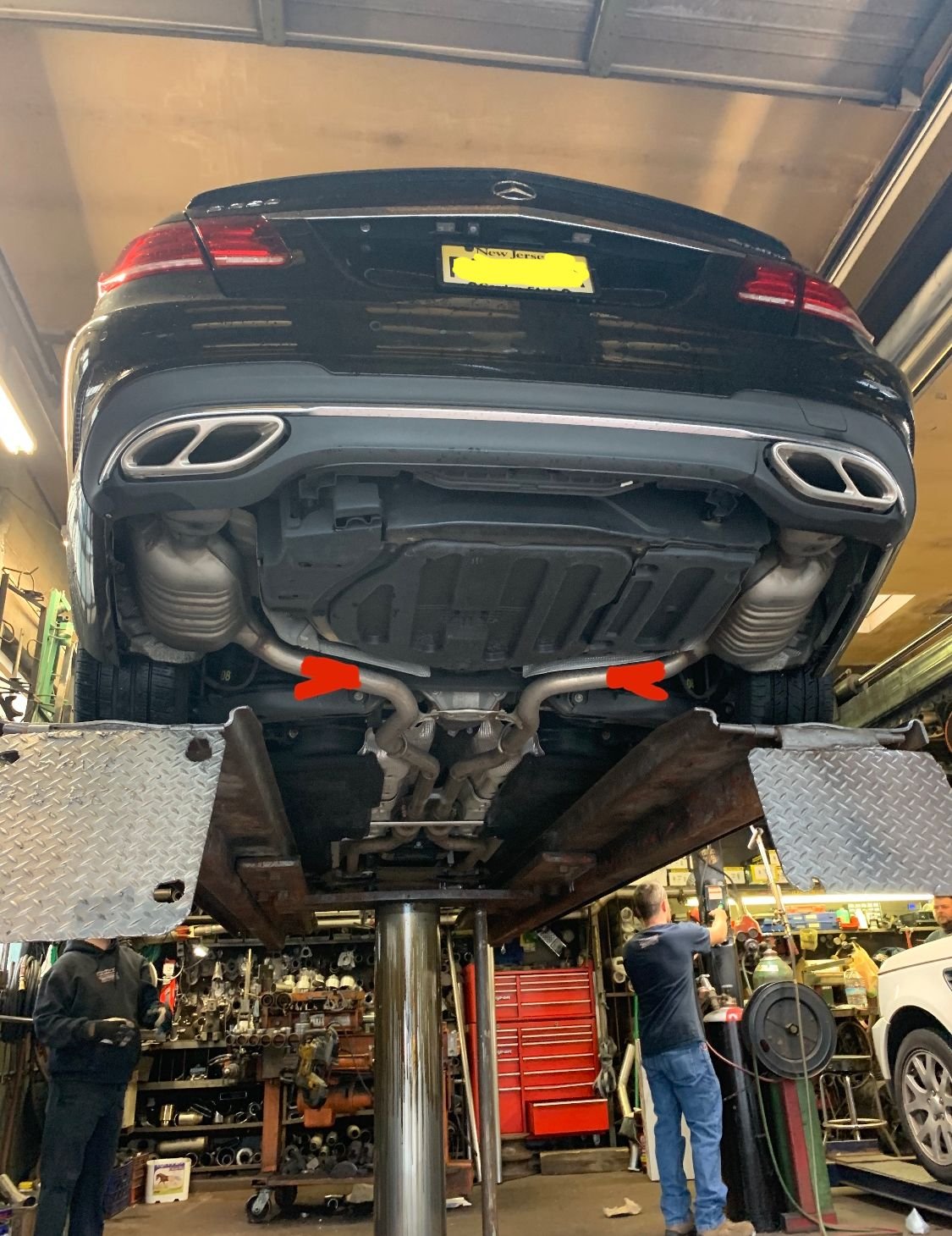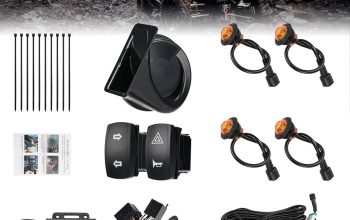A deleted truck will not pass inspection. It is important to understand that a deleted truck, referring to a vehicle that has had its emissions control system modified, is illegal and can result in a failed inspection.
What Is A Deleted Truck?
A deleted truck refers to a modified diesel truck that has undergone deleting or removal of certain emission control systems. These modifications are often done to enhance the truck’s performance and fuel economy.
A deleted truck is typically equipped with a DPF delete kit that removes the diesel particulate filter (DPF), EGR delete kit that eliminates the exhaust gas recirculation (EGR) system, and DEF delete kit that bypasses the diesel exhaust fluid (DEF) system. By eliminating these components, the truck’s engine can operate with fewer restrictions, resulting in increased power and improved fuel efficiency.
| Deleted Component | Benefits |
|---|---|
| DPF | – Increased horsepower and torque – Improved fuel efficiency – Reduction in maintenance and repair costs |
| EGR | – Better throttle response – Lower engine operating temperatures – Reduced soot buildup |
| DEF | – Elimination of DEF fluid costs – Simplified maintenance |
It is important to note that while deleting these systems may offer performance benefits, it is illegal and may violate emissions regulations in certain areas. In addition, deleted trucks may not pass inspection in regions where emissions testing is required.

Credit: mbworld.org
Why Are Inspections Necessary For Deleted Trucks?
Inspections are necessary for all trucks, including those that have been deleted. The primary reason for this is safety concerns. Deleted trucks often undergo modifications that can impact their performance and safety features. Inspections ensure that these modifications do not compromise the truck’s ability to operate safely on the road.
Another important aspect of inspections for deleted trucks is the environmental impact. Many modifications made to trucks, such as removing emissions control systems, can have a negative impact on air quality. Inspections help to ensure that deleted trucks still comply with environmental regulations in order to minimize their contribution to air pollution.
Lastly, inspections of deleted trucks are also necessary due to legal requirements. Depending on the region, deleted trucks may be subject to specific laws and regulations. Inspections help to ensure that these trucks meet the necessary standards and are compliant with local legal requirements.
Factors That Affect A Deleted Truck’s Ability To Pass Inspection
The ability of a deleted truck to pass inspection can be influenced by several factors, including the age of the truck, local inspection regulations, and the type and extent of modifications made to the vehicle.
The age of the truck is an important factor because older trucks may have more wear and tear, which could affect their overall condition and performance. Local inspection regulations also play a role in determining whether a deleted truck can pass inspection, as different areas may have different criteria and standards for emissions testing and safety inspections.
The type and extent of modifications made to the truck can also impact its ability to pass inspection. Some modifications, such as deleting or replacing certain emissions components, may be illegal and result in a failed inspection. Additionally, modifications that alter the safety features or structural integrity of the truck may also lead to an inspection failure.
It is vital for truck owners to be aware of these factors and ensure that their deleted trucks comply with local regulations and safety standards to increase the chances of passing inspection.
Steps To Increase The Chances Of A Deleted Truck Passing Inspection
Steps to increase the chances of a deleted truck passing inspection:
Restoring original emissions systems: When modifying a truck by deleting its emissions systems, it may not meet the requirements for passing inspection. Restoring the original emissions systems can greatly increase the chances of the truck passing inspection. By reinstalling the deleted components, such as the EGR (Exhaust Gas Recirculation) system, DPF (Diesel Particulate Filter), and SCR (Selective Catalytic Reduction) system, the truck can meet the emissions standards set by regulatory authorities.
Ensuring all safety features are intact: A deleted truck may have safety features compromised during the modification process. To increase the chances of passing inspection, it is crucial to ensure that all safety features, such as airbags, seat belts, tire pressure monitoring systems, and ABS (Anti-lock Braking System), are intact and functioning properly. Any damaged or missing safety features should be repaired or replaced to meet the safety standards required for passing inspection.
Working with a certified mechanic or inspection station: To optimize the chances of a deleted truck passing inspection, it is recommended to work with a certified mechanic or inspection station. These professionals have the knowledge and experience to identify any issues that may lead to a failed inspection. They can provide guidance on what modifications need to be made and ensure that the truck complies with all the necessary regulations and standards.
Legal Implications
Fines and penalties: When a truck is deleted from the records, it can have severe legal implications such as fines and penalties. Authorities impose hefty fines on individuals or businesses found driving or owning a deleted truck. The amount of fines may vary depending on the jurisdiction and the severity of the offense. These fines are meant to discourage the use of deleted trucks and ensure compliance with regulations. Moreover, repeat offenders may face additional penalties, including license suspensions or vehicle impoundment.
Potential loss of vehicle registration: Using a deleted truck can also lead to the loss of vehicle registration. When a truck is deleted, it loses legal status, making it ineligible for registration. This means that individuals or businesses caught driving or owning a deleted truck may have their vehicle registration canceled or suspended. Without a valid registration, it is illegal to operate the truck on public roads. In addition, if a truck is deleted, it may be challenging to reinstate the vehicle registration, requiring extensive documentation and compliance with all necessary regulations.
Practical Implications
One of the key practical implications of having a truck that has been deleted from its original configuration is the inability to drive legally on roads. Deleted trucks often lack the necessary emissions control systems and may not meet the required safety standards, making them non-compliant with regulations governing vehicle operations. This means that if you have a deleted truck, you may face legal consequences if caught driving it on public roads.
Another significant challenge is obtaining insurance coverage for a deleted truck. Insurance companies may view deleted trucks as high-risk vehicles due to their non-compliance with regulations. As a result, they may either refuse to provide coverage altogether or charge higher premiums to account for the increased risk. This can have substantial financial implications for truck owners.
Frequently Asked Questions Of Will A Deleted Truck Pass Inspection
Can You Get In Trouble For Deleting A Truck?
Deleting a truck without proper authorization can lead to legal trouble, resulting in fines or penalties.
Will Dealerships Take Deleted Trucks?
Dealerships will typically not accept deleted trucks due to legal restrictions on modified vehicles. It is important to check with your local dealership for their specific policies.
What Is The Penalty For Deleting A Diesel Truck?
The penalty for deleting a diesel truck varies depending on local regulations and the reason for the deletion. It can range from fines to suspension of vehicle registration or even legal consequences. It is important to consult with local authorities or legal professionals for specific penalties in your area.
What States Allow Dpf Delete?
DPF delete is illegal in all 50 states. It is a violation of federal law and can result in hefty fines. Always adhere to emission regulations and maintain the integrity of your vehicle’s emissions system.
Conclusion
Determining whether a deleted truck will pass inspection is a complex issue that requires a careful assessment of various factors. While deleting certain components can improve fuel efficiency and overall performance, it may also lead to potential compliance issues. It is crucial to consult with experts and adhere to local regulations to ensure that the modified truck meets the necessary safety and emission standards.
By doing so, you can avoid any legal complications and ensure a successful inspection outcome.
